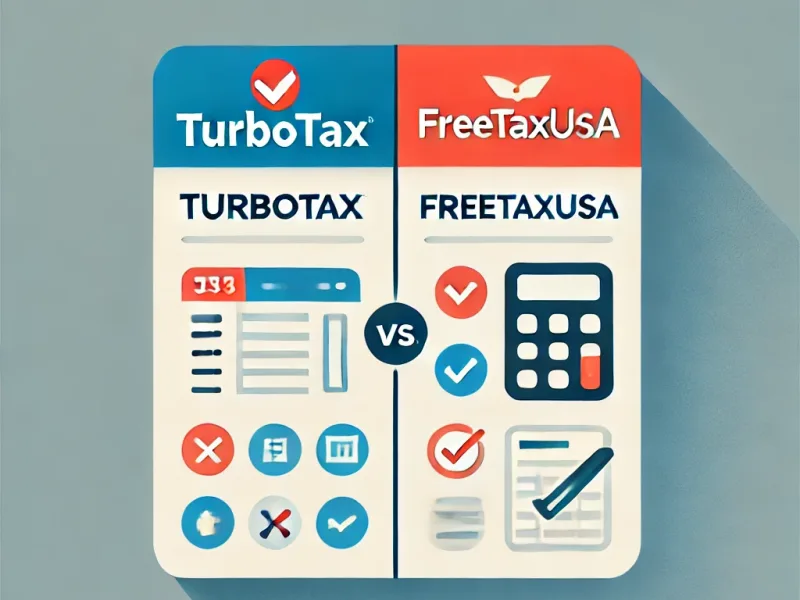As we head into 2025, tax laws are evolving to reflect shifts in the economy, government priorities, and inflation adjustments. Whether you’re a seasoned filer or new to the world of taxes, staying on top of these changes can help you make smarter financial decisions and avoid costly mistakes. In this blog post, we’ll compare the key IRS tax changes for 2025 with the rules that applied in 2024, so you can better understand how they’ll affect your tax planning.
1. Changes to IRS Tax Brackets: A Look at 2025 Adjustments
The IRS typically adjusts tax brackets each year to account for inflation. In 2025, we’re seeing modest increases to the tax brackets, which means you may owe less in taxes if your income remains the same as last year. Here’s a quick comparison between the tax brackets for 2024 and 20251:
| Tax Rate | 2024 (Single) | 2024 (Married Filing Jointly) | 2025 (Single) | 2025 (Married Filing Jointly) |
|---|---|---|---|---|
| 10% | $0 – $11,000 | $0 – $22,000 | $0 – $11,500 | $0 – $22,500 |
| 12% | $11,001 – $44,725 | $22,001 – $89,450 | $11,501 – $45,750 | $22,501 – $91,500 |
| 22% | $44,726 – $95,375 | $89,451 – $190,750 | $45,751 – $97,250 | $91,501 – $193,000 |
| 24% | $95,376 – $182,100 | $190,751 – $364,200 | $97,251 – $185,100 | $193,001 – $368,500 |
| 32% | $182,101 – $231,250 | $364,201 – $462,500 | $185,101 – $236,300 | $368,501 – $473,000 |
| 35% | $231,251 – $578,100 | $462,501 – $693,750 | $236,301 – $586,300 | $473,001 – $699,200 |
| 37% | Over $578,100 | Over $693,750 | Over $586,300 | Over $699,200 |
Key Takeaway: The brackets are slightly expanded in 2025, which means you might be able to earn a little more income before moving into a higher tax bracket.
2. Standard Deduction: More Room for Tax Relief
The standard deduction is another area where we see an adjustment for 2025. The IRS increases the standard deduction each year to keep pace with inflation. Here’s how the standard deduction changes between 2024 and 2025:
- 2024:
- Single: $13,850
- Married Filing Jointly: $27,700
- Head of Household: $20,800
- 2025:
- Single: $14,100
- Married Filing Jointly: $28,200
- Head of Household: $21,100
Key Takeaway: The standard deduction increases by a few hundred dollars across the board in 2025. This could mean a lower taxable income and, ultimately, lower taxes for many filers.
3. Child Tax Credit: Adjustments and Phase-Outs
The Child Tax Credit (CTC) has been a powerful tax benefit for families, and the IRS has made some important adjustments for 2025.
- 2024: The Child Tax Credit was worth up to $2,000 per child under 17, with phase-outs starting at $200,000 for single filers and $400,000 for married couples.
- 2025: The CTC remains at $2,000 per child, but the phase-out thresholds increase slightly to $210,000 for single filers and $420,000 for married couples.
Key Takeaway: The increase in phase-out thresholds means that higher-income families may still qualify for the full credit, offering additional financial relief.
4. Retirement Contribution Limits: Saving More for the Future
The contribution limits for retirement accounts are set to increase in 2025, allowing you to save more in tax-advantaged accounts such as 401(k)s and IRAs.
- 2024:
- 401(k) Contribution Limit: $23,000 (under age 50), $30,000 (age 50+)
- IRA Contribution Limit: $6,500 (under age 50), $7,500 (age 50+)
- 2025:
- 401(k) Contribution Limit: $24,000 (under age 50), $31,000 (age 50+)
- IRA Contribution Limit: $6,800 (under age 50), $7,800 (age 50+)
Key Takeaway: For those looking to maximize their retirement savings, the increase in contribution limits can provide a nice boost to your long-term financial strategy.
5. Health Savings Accounts (HSAs): Bigger Contribution Room
The contribution limits for Health Savings Accounts (HSAs) are also seeing a slight increase. This is great news if you’re using an HSA to save for medical expenses or to reduce your taxable income.
- 2024:
- Individual Coverage: $4,150
- Family Coverage: $8,300
- Catch-up Contribution (age 55+): $1,000
- 2025:
- Individual Coverage: $4,300
- Family Coverage: $8,600
- Catch-up Contribution (age 55+): $1,000
Key Takeaway: In 2025, the HSA contribution limits are slightly higher, giving you more room to save on a tax-deferred basis for health care costs.
6. State Tax Changes: What to Expect in 2025
While federal tax changes are often the focal point, many states also make annual adjustments to their own tax laws. Some states may lower their tax rates or introduce new credits, while others may increase their rates to address budget needs.
Key Takeaway: Be sure to check your state’s tax laws, as these can vary significantly. Some states are moving toward eliminating income taxes altogether, while others are expanding credits for renters, homeowners, or students.
7. Tax Filing Season in 2025: What’s New?
In terms of tax filing processes, there are a few changes to be aware of for the 2025 season:
- E-Filing: The IRS is pushing for even more streamlined e-filing processes in 2025, with an emphasis on security and ease of use.
- Taxpayer Identification Numbers (TINs): If you’re filing taxes for dependents, it’s important to ensure that their TINs are accurate. The IRS will be more stringent in verifying dependent claims.
Key Takeaway: Make sure your filing is up to date with the latest IRS e-filing recommendations and requirements for dependents.
Final Thoughts on IRS tax changes in 2025
The IRS tax changes in 2025, though not dramatic in some areas, offer new opportunities for savings, especially when it comes to retirement accounts, the standard deduction, and child-related tax credits. By staying informed and making adjustments to your financial strategy, you can maximize your savings and minimize your tax liability.
Remember, tax planning isn’t just about filing your return—it’s about making the best financial decisions throughout the year. Consider speaking with a tax professional to take advantage of these changes and make sure you’re on the right track for 2025.


Hey there, You have done an incredible job. I抣l certainly digg it and personally recommend to my friends. I am sure they’ll be benefited from this site.